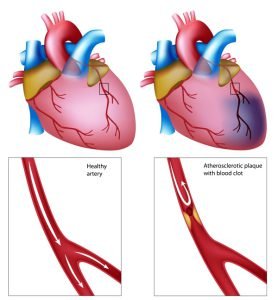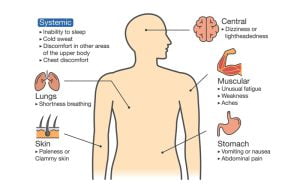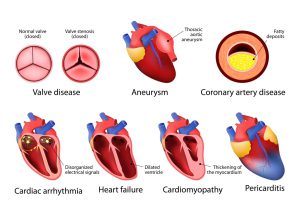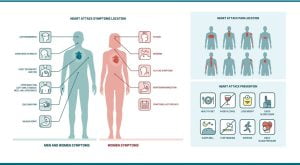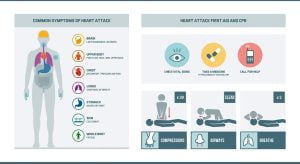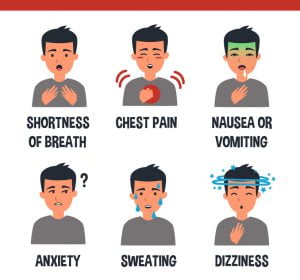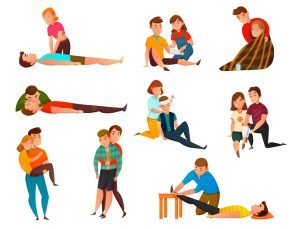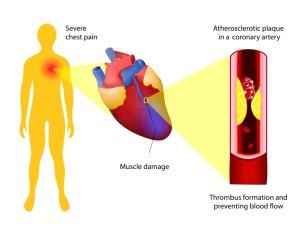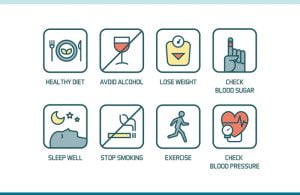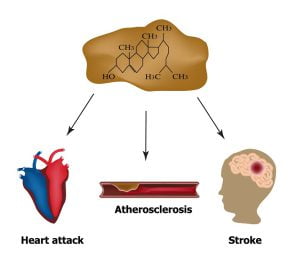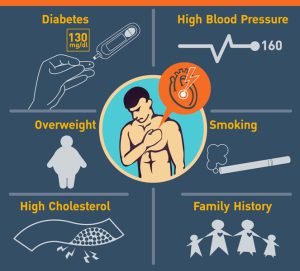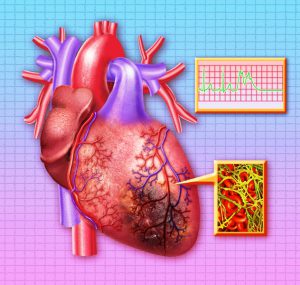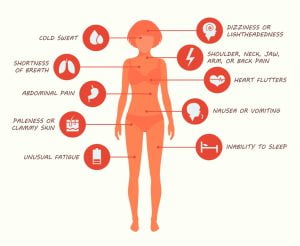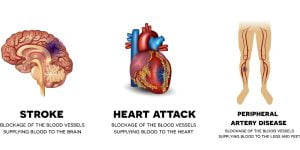Browsing: Myocardial Infarction (Heart attack) Graphics
Comprehensive Information, Resources, and Support on Myocardial Infarction (heart attack)
A heart attack occurs when the flow of blood to the heart is blocked, generally by a build-up of fat, cholesterol and other substances, which form a plaque in the arteries (a disease called coronary artery disease).
A heart attack not only causes a chest pain, but can also severely affect other organs which can show their own symptoms of the disease.
Heart disease is a term that covers a range of disorders that affect the heart. Coronary artery disease is the most common type of heart disease.
Most people think chest pain is a symptom of heart attack. In recent decades, however, we have learned that heart attack symptoms aren’t always so obvious. Symptoms may show up in different ways and can depend on a number of factors in different persons and can affect different bodily locations.
You need specialised treatment as quickly as possible in order to save your heart muscle if you have a heart attack. If you are alone when a heart attack occurs, stop whatever you’re doing and go to a safe place, take rest and call for emergency medical help.
A silent heart attack is one in which there are no symptoms. Early warning signs of a heart attack are fatigue, nausea, jaw pain, sharp pain in chest, and headache.
Atherosclerotic plaque buildup in a coronary artery is a major reason for a heart attack.
These are some easy heart attack and atherosclerosis prevention tips. Healthy lifestyle habits is key for heart health.
If your cholesterol levels are very high, then you are at risk of developing various circulartory disorders such as heart attack, stroke and artherosclerosis.
These are some common risk factors for a heart attack. Genetics play an important role in defining the risk of a person for getting a heart attack.
If blood flow is not restored to your heart muscle within 20-40 minutes, irreversible death of the heart muscle will start to occur. Heart muscle will continue to die for about 5-8 hours. This can cause disability or death depending on how much the heart muscle is damaged.
These are some common warning signs of a heart attack (myocardial infarction) that should not be ignored.
Having diabetes means that you are more likely to get heart problems and are at increased risk of a heart attack or a stroke. If you have diabetes, you can protect your heart and brain and overall health by managing your blood glucose/blood sugar.
ADVERTISEMENT




